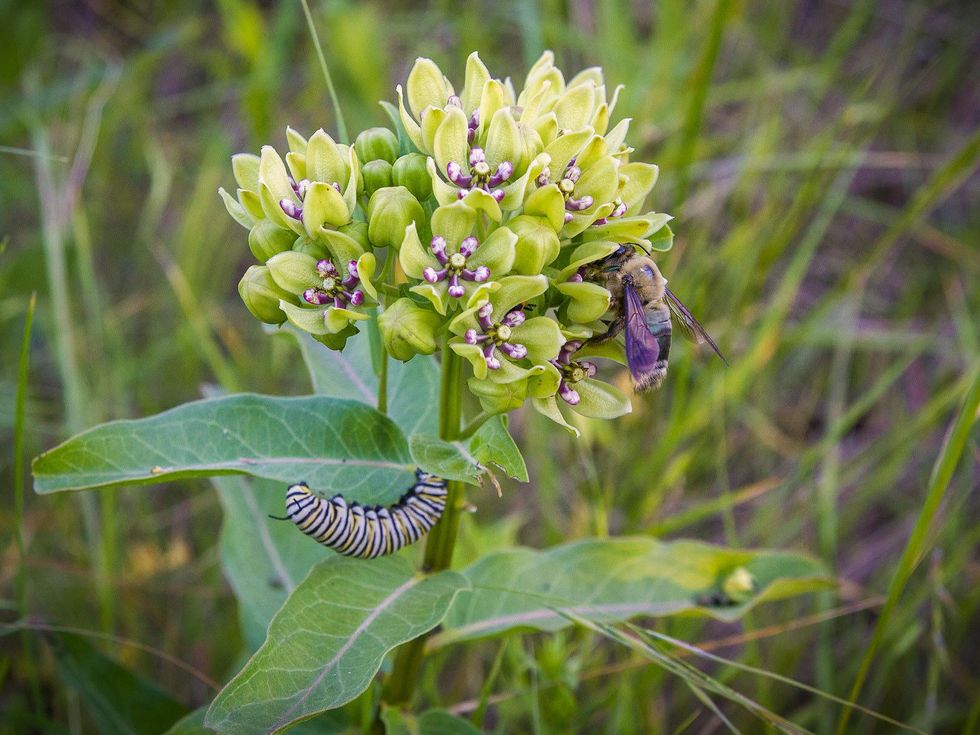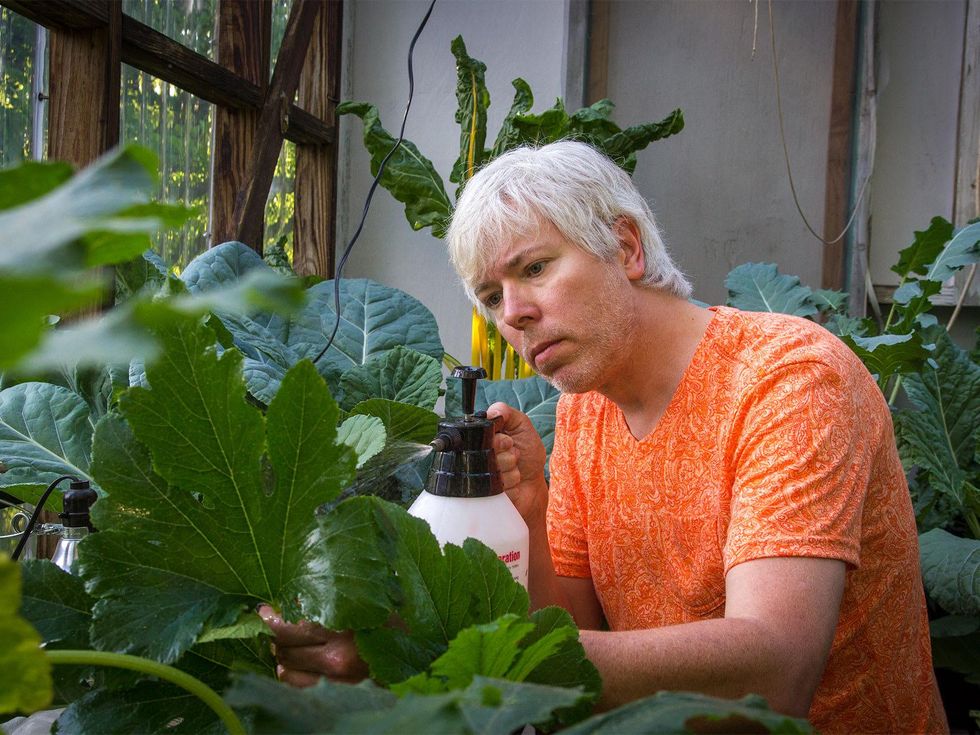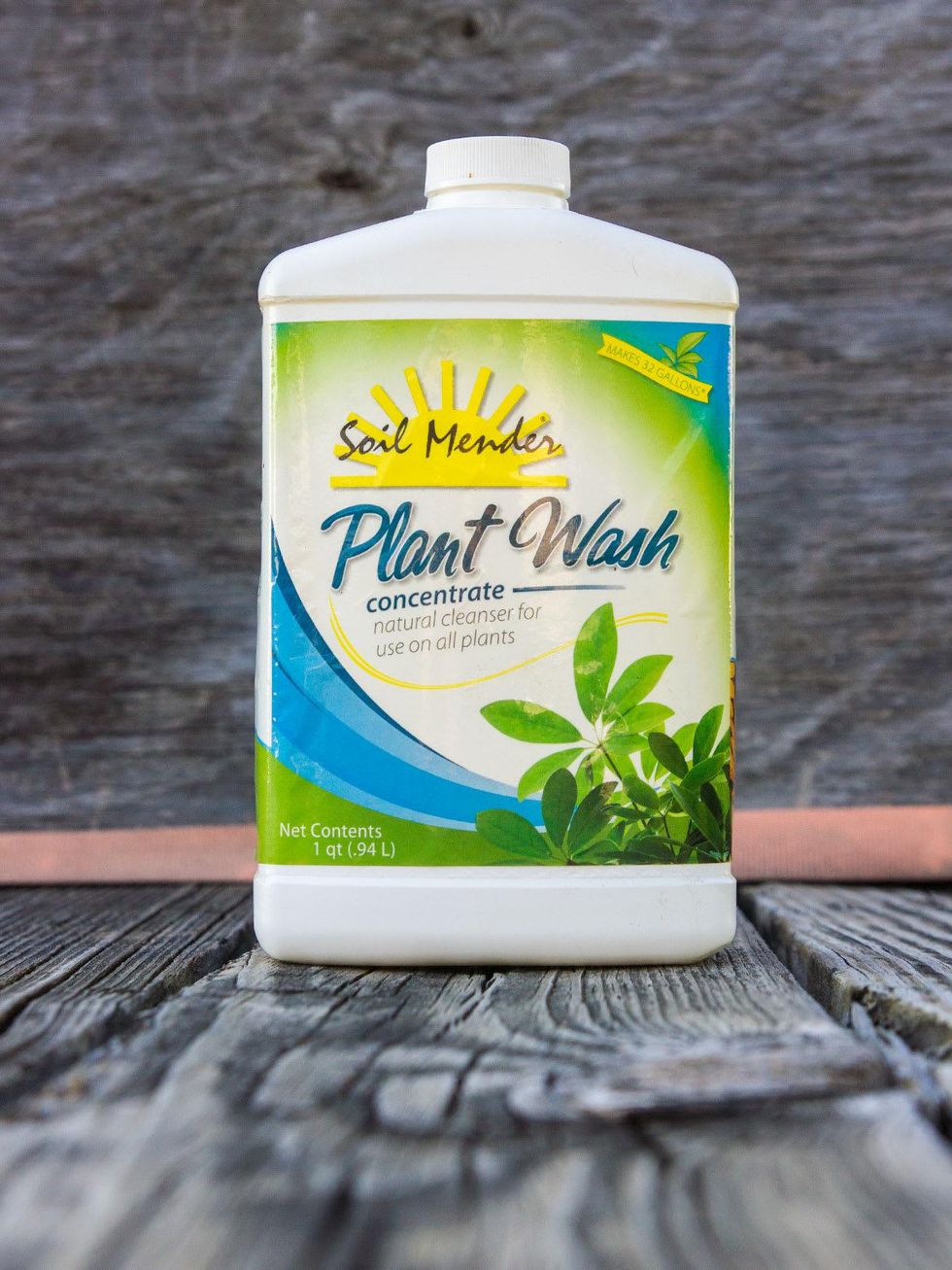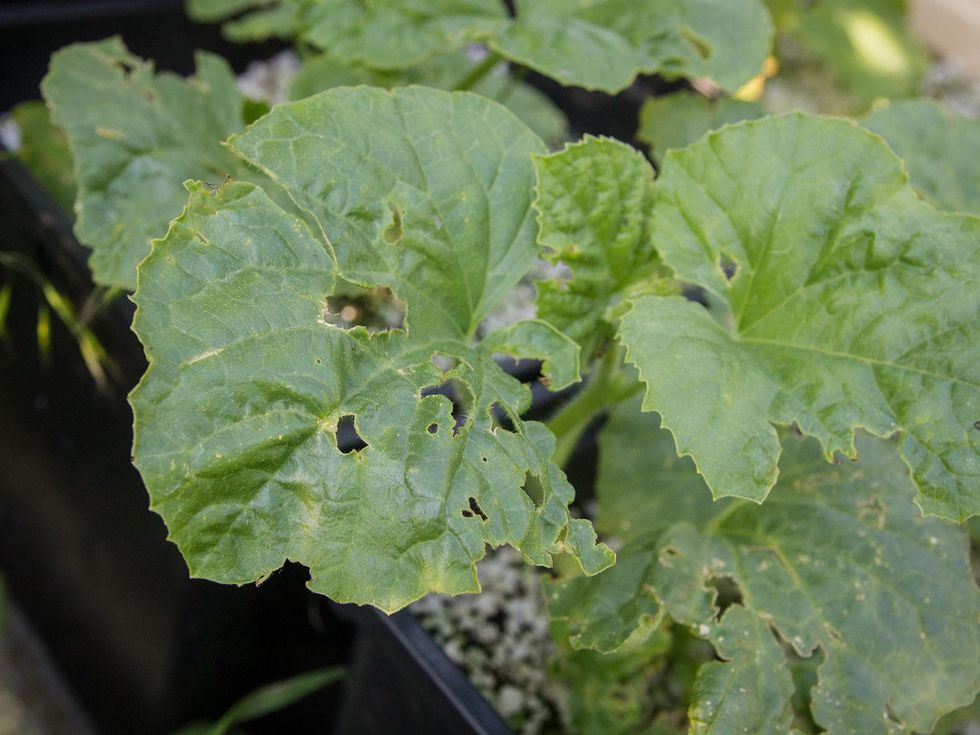The Farmer Diaries
Texas farmer perfects approach to managing garden pests
The monarch butterflies are back. I spotted the first ones in between storms in early April, emerging from hibernation to lay eggs and undertake their annual migration through North America. By the end of the month, my wife spotted monarch caterpillars on the milkweed we give free rein to grow wherever it sprouts up.
As I sat in the tall grass, watching a chubby striped monarch baby eat his fill, another insect I prize greatly appeared: a carpenter bee. It flew slowly and clumsily toward us, stopping by a few flowers here and there until it landed on the milkweed. It buzzed around on the blooms, gathering nectar before taking off for more.
Seeing two beautiful native pollinators, which are declining in numbers but thriving under our care, made my heart fill with a sense of satisfaction that we're doing something right, mostly by not doing much at all.
Doing nothing, or very little, to control insects in my garden is an approach for me that's evolving along with my understanding of the insects themselves. Partly from interacting with entomologists, partly from reading up on insects and a little from my own experience, I'm coming to understand that the most counterproductive thing to do about insects damaging crops is to douse them in potent insecticides. Industrial agriculture has it wrong, as have many backyard gardeners who reach for bug spray at the first sign of chomped-on leaves.
Friend or foe?
My view of bugs in the garden puts me at odds with one of the most popular posts I see on social media gardening pages. It has become its own thing to post a photo of an insect and ask the question, "Friend or foe?" It's a quick way of finding out whether to kill the bug or leave it alone, but it's based on a wrong assumption that the insect world is black and white, that bugs are either beneficial or destructive.
In these conversations, ladybug larva always get a pass. Everyone knows ladybugs eat aphids, so they're a friend.
But aphids get the "foe" label. They suck plant juices right out of leaves. No one defends them.
Dig deeper and you find that aphids have their place. While hanging under leaves and sucking out juice, they're also excreting honeydew, which feeds numerous so-called beneficial insects, even hummingbirds, making them a vital part of a healthy garden rather than something that needs to be killed off swiftly.
Another foe, the blister beetle, devours a long list of crops, from carrots and cabbage to tomatoes and peppers. But at one stage in its development, the blister beetle feeds on grasshopper eggs. At that point, they become a friend, proving that insects cannot be labeled good or bad, beneficial or pest.
Wasps sting. Clearly they're a foe. But wasps also pollinate flowers. What's more, every wasp we see probably began life by eating a caterpillar fed by its parent. Wasps spend their days building nests, laying eggs and hunting for the same caterpillars that eat our broccoli. If we view wasps as protectors of our crops, then wasps are clearly a friend.
How do I get rid of ... ?
More popular than the friend-or-foe post is the question that starts out, "How do I get rid of ... ?" If it's about grasshoppers, it's "How do I get rid of grasshoppers?" If the bug is elusive, it's "How do I get rid of whatever's eating holes in my tomatoes?"
But getting rid of any presumed garden pest is simply not possible. If it were possible, then the Texas Boll Weevil Eradication Program, which costs taxpayers $70 million every year, would have made some progress, because the spraying began after World War II. Instead, the boll weevil is as much a threat to crops today as ever — perhaps more so, as it has developed resistance to even the strongest insecticides.
Because we'll never actually get rid of any insect that's damaging crops, we should opt for a more realistic strategy that allows predatory bugs to gain a foothold. If we want a crew of ladybugs ready to attack whenever there's an outbreak of aphids, we need a steady, well-managed supply of aphids in our garden at all times, feeding the ladybugs every day.
For two years, I've refined a hands-off approach to managing insects in my garden without resorting to toxic chemical killing sprees. If I break it down, it looks something like the following:
Every crop has a season
In the past, I tried to carry my cool-season crops such as kale and collard green through the summer. To do so, I had to fight aphids, caterpillars and drought. My reward was greens so tough and bitter they couldn't be chewed or enjoyed. These crops simply don't do well in the summer.
Bolstering them against their inevitable decline from insect damage was a fruitless job. Now I let them go at the end of spring. I replant new transplants in the fall and eat fresh greens through winter and early spring with no pest worries.
Not every plant makes it
I've heard there are no pest problems, only stressed plant problems. Experience bears this out to be true. Look closely at any thriving plant and you will find aphids, beetles or something that eats it. But a robust plant can handle insects eating it. A plant that's stressed by drought or nutrient deficiencies can't handle insects, and so it succumbs.
I start off the year with at least a fourth more plants than I end up with in the fall. Some plants will fall by the wayside. I let them die and concentrate my efforts on the healthy plants, rather than trying to revive an ailing plant with the Band-Aid fix of pesticides.
Sure, I hate to see my work frustrated. But more than that, I hate to see bees disappear from my raised beds, which would happen if I resort to toxic sprays.
Use plant wash
I think I was 12 years old when I first became aware that gardeners used soapy water to mitigate insect damage in crops. But when I tried to add a drop of dish liquid to a spray bottle of water, the leaves turned brown and crispy.
It turns out I wasn't using the best soap. A plant wash made specifically for spraying plants is highly effective. In my greenhouse where ladybugs can't enter, I use it weekly to keep aphids under control on several squash plants growing indoors. Last year, when I let a pepper plant go too long without water and it began to be overtaken by aphids, I sprayed it with plant wash. The next day it was perky as before the neglect.
Plant wash works in two ways: First, the bugs are sprayed off the plant just like debris is hosed off a driveway. Second, the mild surfactant of the wash dries out the bodies of soft-bodied insects, killing them in minutes. I've accidentally hit a few ladybugs when I use plant wash, and never has it hurt them.
Accept imperfection
So much of the drive to spray for bugs comes from a sense that crops must be untouched and fruit must be perfect. In fact, plants can lose most of their leaves and still be healthy. Tomatoes, peppers, melons and squash taste just as good even if they've been sampled by an uninvited diner. If we drop our notion that a head of lettuce with an eaten leaf and a potato missing a chunk are damaged goods, then we find that we can live without pesticides and their risks.
My hands-off approach has been effective. It's not as if I'm starving while engorged insects ravage my field. I still buy nothing from the produce aisle but the fruits and vegetables I can't yet grow because of my location on the planet.
Crops like avocados and oranges need frost-free climates. I also buy items I've run out of, such as when my parents sold off the potato harvest last year. Potatoes grown in Texas have a short shelf life, so they had to be sold.
In the last five years I've been growing most of my own food, I've never looked out onto the garden and not had something to bring into the kitchen and plate up. I enjoy a year-round harvest, and a $20 to $50 savings on my weekly grocery bill, plus a little income from specialty melons.
Crop production without pesticides is feasible. I'd even say it's easier. Seeing beautiful butterflies, productive bees, peculiar moths and a world of interesting insects thriving among my crops has rewarded me with a sense that something good and right is happening in the world. I can live, and let them live.





 Iced doughnut from Parlor DoughnutsPhoto courtesy of Parlor
Iced doughnut from Parlor DoughnutsPhoto courtesy of Parlor